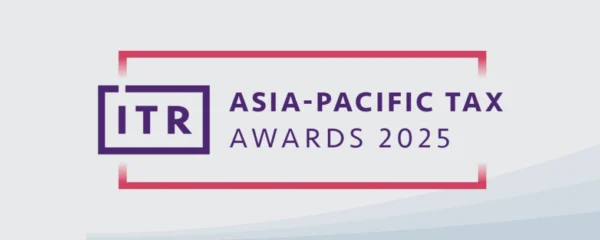Global Minimum Tax: Its Impact on Taxation Policy in Vietnam
December 20, 2023
The Global Minimum Tax (“GMT”) Resolution was approved by the Vietnamese National Assembly on 29 November 2023 and will enter into force on 1 January 2024. This article highlights some key provisions of the GMT Resolution as well as will focus on its impact on the reporting requirements in Vietnam.
Global Minimum Tax
The Global Minimum Tax is a one of the pillars of the Action Program to Combat Base Erosion and Profit Shifting (“BEPS”) initiated by the Organization for Economic Cooperation and Development (“OECD”) in June 2013.
The concept of global minimum tax relates to the corporate income tax payable by multinational companies that meet threshold defined by OECD. Under the plan, CIT at a rate of at least 15% shall apply to multinational companies with total global consolidated revenue of 750 million EUR.
Global Minimum Tax Resolution in Vietnam
On November 29th, the National Assembly enacted a Resolution on the implementation of an additional corporate income tax in accordance with regulations to prevent global tax base erosion (“GloBE”). The resolution will be applicable from fiscal year 2024. It is projected that over 100 international firms will be liable to tax, with an additional annual tax revenue of approximately 14,600 billion VND per year (approx. 602 million USD).[1]
The GMT resolution defines “Additional CIT” as Additional Tax Rate * Excess Profit. The Additional Tax Rate will be the gap between the Global Minimum Tax Rate and the Effective Tax Rate that the company bears in Vietnam. The Global Minimum Tax Rate is set at 15% while the Effective Tax Rate of a MNE in Vietnam is the sum of applicable tax attributed for Vietnam entity member in a financial year over net income in accordance with the GloBE.
The GMT Resolution further refers to two new concepts: the Income Inclusion Rule (“IIR”) and the Qualified Domestic Minimum Top-up Tax (“QDMTT”).
IIR
This applies to:
- Ultimate parent companies,
- Partially owned parent companies, or
- Intermediate parent companies
which are based in Vietnam and have direct or indirect ownership of a low-tax foreign constituent entity under global minimum tax regulations at any time during the fiscal year.
The Additional Corporate Income Tax is exempted (zero tax) for a member entity in a jurisdiction if such member entity meets all conditions below:
- Average revenue as per the GloBE in that jurisdiction is less than EUR 10 million;
- Average income as per the GloBE in that jurisdiction is less than EUR 1 million or in loss position;
QDMTT
This applies to MNE constituent units or groups of constituent units that have production or business activities in Vietnam throughout the financial year. The Additional Corporate Income Tax is exempted (zero tax) for a member entity (or group of members) in Vietnam, if such member entities meet all conditions below:
- Average revenue as per the GloBE in Vietnam is less than EUR 10 million;
- Average income as per the GloBE in Vietnam is less than EUR 1 million or in loss position
The Government is assigned to prepare an amendment to the Law on Corporate Income Tax taking into account contents of this GMT Resolution.
Immediate impact and actions required
Vietnam currently employs a variety of tax incentives for foreign investment businesses, including:
- preferential tax rates (10% up to 15 years or whole term of the project);
- tax holiday up to 4 years and/or half reduction (up to 9 years);
- allow loss carryback when calculating taxable revenue (within 5 years);
- no withholding tax on transferring profits abroad;
- allowing for accelerated depreciation or other tax incentives and land rent reductions.
These tax incentives contribute to reducing in some cases the actual corporate income tax rate of FDI enterprises to around 12% or sometimes less.[2] Accordingly, it can be expected that impacts from the new regulations will apply to quite a substantial number of companies operating in Vietnam.
GMT Resolution provides that a report on qualification under QDMTT or IIR shall be filed within specific timeline:
- 9 months after the end of the fiscal year for taxpayers who qualify for QDMTT regulations; and
- 15 months after the end of the fiscal year for taxpayers who qualify for IIR regulations.
Please contact our tax team for clarifications on the above or support in assessing the impact of the new regulations and help in preparing and submitting the new reporting documents.
[1] Statistic from General Department of Taxation: https://www.mof.gov.vn/webcenter/portal/btcvn/pages_r/l/tin-bo-tai-chinh?dDocName=MOFUCM294852.
[2] Statistics from General Department of Taxation: http://customs.gov.vn:8228/index.jsp?pageId=3244&aid=184777&cid=5278#:~:text=Theo%20T%E1%BB%95ng%20c%E1%BB%A5c%20Thu%E1%BA%BF%2C%20c%C3%A1c,thu%E1%BA%BF%20su%E1%BA%A5t%20trong%209%20n%C4%83m.
Recent Publications
Legal Update
Legal UpdateTax Update
Recent News

Project Finance Workshop at Andersen Vietnam
Read More »
Andersen in Cambodia and Vietnam shortlisted for the 2025 ITR Asia-Pacific Tax Awards
Read More »
Andersen Vietnam Publishes Its Market Entry Guide for Vietnam Prepared in Collaboration With the Investment Promotion Agency of Da Nang
Read More »



